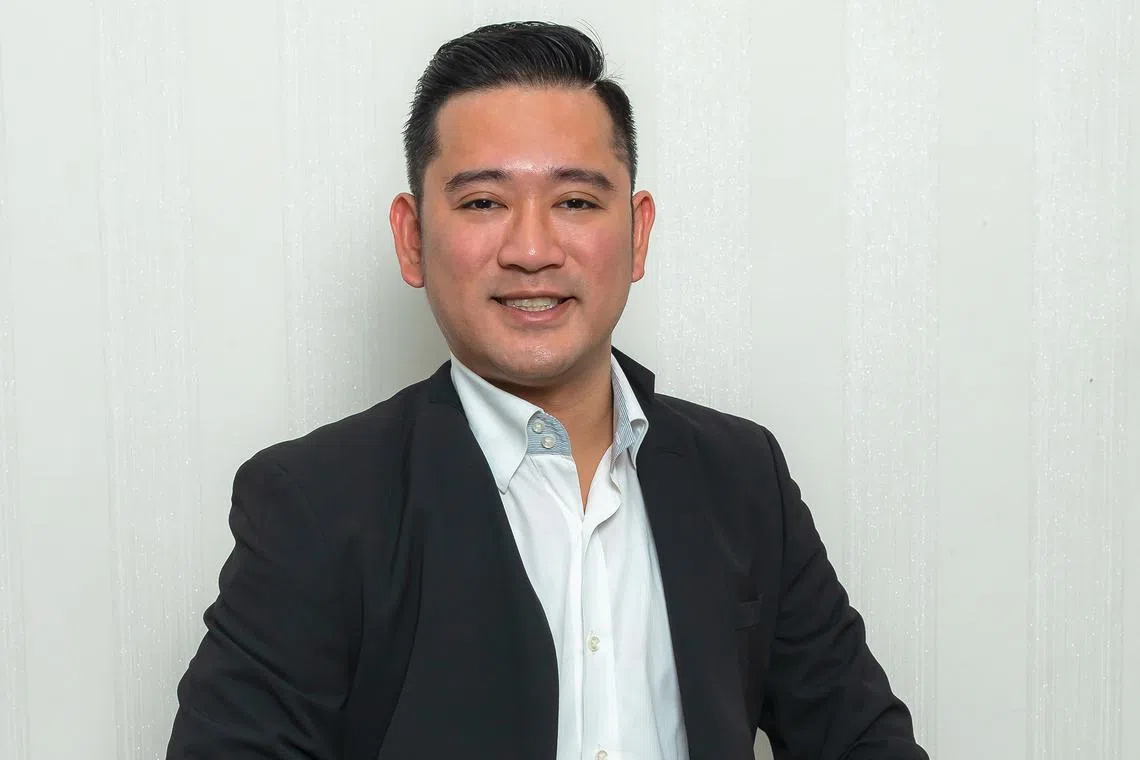Digitalising to help businesses and improve lives
These Emerging Enterprise Awards finalists use technology to simplify and speed up business processes

FROM personalised learning to cybersecurity defences, these five companies’ technologies ease business operations and improve lives.
They are among 15 finalists of this year’s Emerging Enterprise Awards. Established in 2008, the awards recognise startups and young businesses across Singapore and Asia, providing resources to boost their growth.
Such high-performing businesses have an enterprising mindset, consistently pursue growth and are always on the lookout for new markets.
This year’s awards are co-presented by The Business Times and OCBC, and supported by Mastercard, Rajah & Tann Asia, RSM Singapore, the Agency for Science, Technology and Research, Enterprise Singapore and Paia Consulting.
Protecting companies by screening partners and personnel
Through background checks and company due diligence, Avvanz helps firms retain employees and guard against fraud

Studies show that thoroughly vetted employees tend to stay with the company for longer, decreasing staff attrition. While people are assets to organisations, they are also risks. The cost of fraud, financial damage and even reputational damage can be mitigated with background checks.
Navigate Asia in
a new global order
Get the insights delivered to your inbox.
Avvanz’s award-winning ScreenGlobal platform uses technologies such as artificial intelligence (AI), robotic process automation and blockchain to enable users to conduct over 20 types of checks across more than 150 countries.
Working with companies can also pose risks, such as money laundering scandals, fraudulent partners, non-paying customers and criminal stakeholders. Avvanz’s CDDGlobal enables companies to conduct due diligence checks on other companies.
We also have a cyber risk product that can conduct due diligence on the security vulnerabilities of a company’s website.
Avvanz is an approved screening provider for various government agencies. For the Ministry of Manpower, we screen those entering Singapore on work passes; for the Monetary Authority of Singapore, we conduct checks on family offices setting up here; and for the Early Childhood Development Agency, we do checks on educators at childcare providers.
We serve over 4,000 clients, with our headquarters in Singapore and offices in five other countries: the UK, the US, Australia, the Philippines and India. We want to aggressively grow our revenue, especially in the US and Australia.
We also plan to improve both ScreenGlobal and CDDGlobal with new versions. Enhancements include more intuitive user interfaces, enabled by generative AI, and automating more manual workflows to shorten turnaround time.
Currently, users from the UK and US can use identity verification technology to log into ScreenGlobal, which is more secure than using an ID and password. The new versions of our platforms will enable this in more countries.
We are also adding payment options, which will change based on the country. For example, options such as UnionPay, Alipay and WeChat Pay will be offered in China.
Keeping constant watch for cybersecurity threats
Software company Cybernatics is aiming for a 2027 public listing

Cybernatics offers a cybersecurity software-as-a-service (SaaS) that provides constant visibility of vulnerabilities and threats for businesses, and can generate on-demand compliance reports.
Our company’s software has several unique strengths. It coexists with existing anti-virus software, without the need to uninstall anything. It can detect anomalies in real time, which stops malware and ransomware attacks.
It can also generate compliance reports in a few clicks, providing security audits at an affordable price.
We want to make our SaaS affordable to small and medium-sized businesses globally, as they are the most vulnerable. Existing products in the market tend to be for the enterprise sector and are priced too high for smaller businesses.
Built by cybersecurity experts with decades of real-world experience, our software is already deployed in government agencies in Asia. In August 2024, we launched a globally accessible subscription service.
While we originated in Singapore, we want to progressively and systematically market our software to South-East Asia, Australia and New Zealand, North America, Europe, Latin America and the rest of the world through a subscription model, as well as riding on existing channels overseas.
We already work with other cybersecurity companies – software companies and system integrators – in Canada, Australia, Sweden, Sri Lanka and Latin America. These partners either upsell our software as a value-add, or use our software to differentiate their services.
We are looking to recruit more partners, with Asean and US being the next markets planned.
We have begun Series A fundraising with an aim to raise US$5 million in equity funding and plan for an initial public offering in 2027, either on the Nasdaq or the New York Stock Exchange.
Promoting understanding through speech technology
Fano Labs plans to improve its technology’s capabilities to give clients greater control

Fano Labs’ core business is developing speech-related technologies for multilingual environments: advanced speech recognition; speaker diarisation, which is labelling audio with speaker identities; speaker verification; and natural language processing.
Our solutions cater to diverse industries, including banking and finance, telecommunications, public transport, utilities, government departments and public agencies.
We enable organisations to streamline operations, improve user engagement and drive efficiency.
By understanding human speech and conversations, clients can better communicate with customers, enhance regulatory compliance, discover growth insights and protect against cyberthreats.
Fano was founded in 2015 as a spinoff from the University of Hong Kong. With the expansion to Singapore, Malaysia and Taiwan this year, we will continue to solidify our position in the markets and expand into other international markets.
We are also exploring strategic partnerships to enhance our technology’s capabilities and broaden our reach in emerging markets.
We want to be a leading force in the speech AI industry. Amid a concerning increase in frauds and scams, including sophisticated audio manipulations, our team has been performing research and development in audio deepfake detection.
In the near future, we plan to expand support for Asia-Pacific languages in our language engine, and continue developing large language model (LLM) products.
Additionally, we are integrating on-premises LLMs – hosted at clients’ own premises – into our products. This allows businesses to harness the power of AI while maintaining full control over their data, ensuring data privacy and security.
Training talent for productive work postings
Human resource firm Finfleet helps workers gain hands-on experience as they upskill

Finfleet Teknologi Indonesia is not your typical outsourcing company. We take a unique approach by recognising the potential in candidates even when there are initial skill gaps, and providing the necessary support to help them bridge those gaps.
This way, employers get access to skilled, prepared talent, while jobseekers acquire the tools they need for meaningful employment.
Some candidates may not initially meet the skill or experience requirements for certain roles. Rather than excluding them, Finfleet provides the flexibility for them to start working in available positions while undergoing vocational training.
Finfleet’s programmes are designed to provide the expertise needed for specific roles. This allows employees to gain hands-on experience while developing the qualifications required to excel, ensuring both immediate job placement and long-term career growth.
Our platform integrates data such as talent pool information, job tenure, attendance records, preferred roles and earned wage access, which is when employees can receive a portion of their salary before payday. We also monitor for fraudulent activities.
By using this system, employers can reduce employee turnover, enhancing efficiency and cut costs related to training and onboarding new staff.
By providing and training candidates, Finfleet ensures its clients receive talent that is both ready and suitable for the job. This results in higher productivity, better job performance and stronger client relationships.
We are based in Indonesia, and aim to equip Indonesian workers to compete globally. Many regional countries such as Japan are facing a shortage of productive-age blue-collar workers. We are securing licences to deploy workers abroad, which will help meet growing demand, foster international collaboration and create opportunities for Indonesia’s labour force.
Making teaching and learning easy
Edutech company HeyHi helps educators create personalised teaching materials and automate processes such as marking

HeyHi leverages data and AI technology to empower schools, educational institutions and corporates to offer personalised and interactive learning experiences.
Our e-assessment and personalised adaptive learning system integrates advanced AI models.
We support “nano learning”. Using our platform, educators can create and deliver bite-sized content such as flash cards, e-books, videos, questions and quizzes, making learning more engaging and efficient.
They can easily create assessments and content; automate marking and reporting; and perform advanced profiling of students based on learning data. They have the flexibility to use ready-to-use content, their own materials or curated partner content.
Our AI Learning Buddy accelerates learning further by enabling self-directed learning, providing personalised feedback for each learner.
In the near future, we aim to expand into Indonesia, Vietnam and Hong Kong.
To enter new markets, we forge strategic partnerships with key stakeholders, such as distributors, system integrators and publishers. We leverage their networks for distribution and their strength to enhance our platform’s offerings.
HeyHi is establishing business development and sales teams to drive direct sales and organic growth, with pilots to demonstrate our platform’s effectiveness.
We are also fine-tuning our generative AI capabilities to create richer and more engaging content, while expanding our nano-learning modules to include interactive simulations and real-time assessments.
While we are currently in the K-12 space, we are expanding into the university space as well.
Decoding Asia newsletter: your guide to navigating Asia in a new global order. Sign up here to get Decoding Asia newsletter. Delivered to your inbox. Free.
Copyright SPH Media. All rights reserved.


